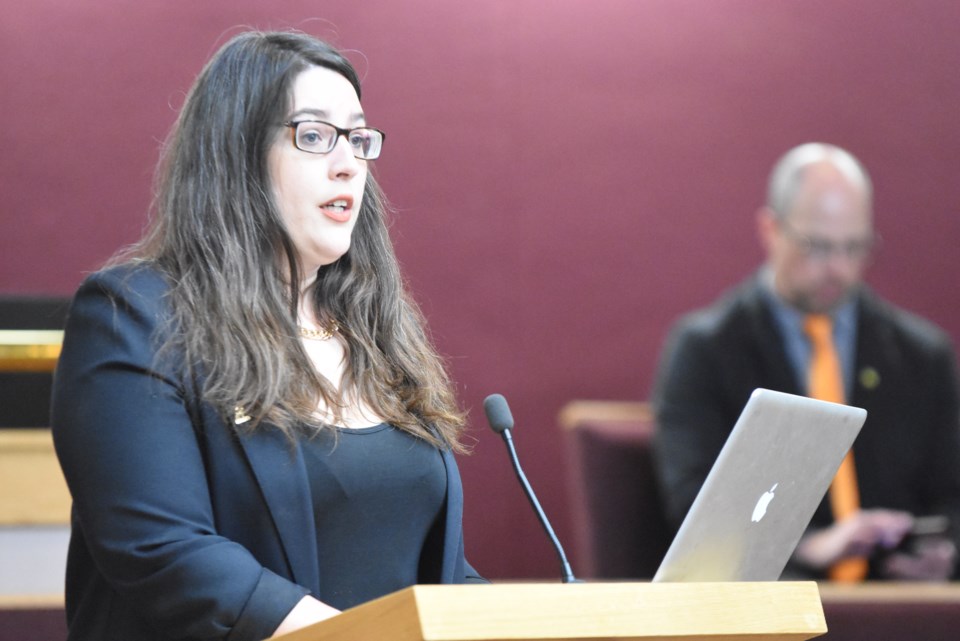The Canadian Charter of Rights and Freedoms protects the press in what it publishes, so it is a clause that one community blogger believes protects her ability to report as well.
In response to city council’s discussion two weeks ago about a proposed communications plan for the municipality — including who is a legitimate reporter, what credentials are acceptable and whether information should be limited — reporter and blogger Mickey Djuric spoke to council during its July 8 meeting. She attempted to prove her professionalism and pushed back on what she perceived to be an attack on the media.
After discussing her background and education, Djuric explained it is her ethical responsibility as a journalist to keep journalism honest. It is also her duty to advocate for a free and open press. She then highlighted the 40-minute discussion council had on June 24 about who is a real journalist.
“I felt it was an extremely dangerous and concerning discussion to have as it was an open attack on freedom of expression. Any attempt to chip away at our freedoms as Canadians must always be confronted,” she said.
Djuric then cited the Charter as the basis for Canadian democracy, noting Canadians’ liberties would be at risk without it.
Section 2 (b) of the Charter says everyone has the freedoms of thought, belief, opinion, and expression, which includes freedom of the press and other media of communication, Djuric said. This applies to bloggers, journalists, reporters, newsmen, someone writing a negative comment on Facebook or a video posted to YouTube.
“Media have certain fundamental freedoms and are free to print and broadcast news and other information,” she said. “The Charter says the government can only limit what the media prints for justifiable reasons set out in law. Asking someone to retract an unfavourable story does not apply to the law.”
Djuric commended council for removing a clause in the proposed communications plan that limited sources of information to the media if council found their work to be false, slanted, or misinformed. She noted that clause could have been viewed as a “blatant breach of our Charter rights.”
“The act of discrediting media is an old play in a very old playbook. After all, it can be viewed that if a reporter is discredited than so is their reporting,” she continued.
However, whether someone is a blogger, a journalist or a chimney sweeper, each has the right to publish what they want, Djuric said. They should not have their access to information or public sources restricted due to a story being unfavourable or embarrassing to an elected official.
Freedom of expression is also connected to the public’s right to information, she said. When government officials start picking and choosing who should report on what, that limits access to information and knowledge. This means there is less accountability of public officials and less transparency.
“Ultimately, in the end, the public loses … ,” she added. “As a journalist, I don’t take debating one’s freedoms lightly. Defending freedom of expression is necessary to keep the public informed.”
The next regular council meeting is July 22.




